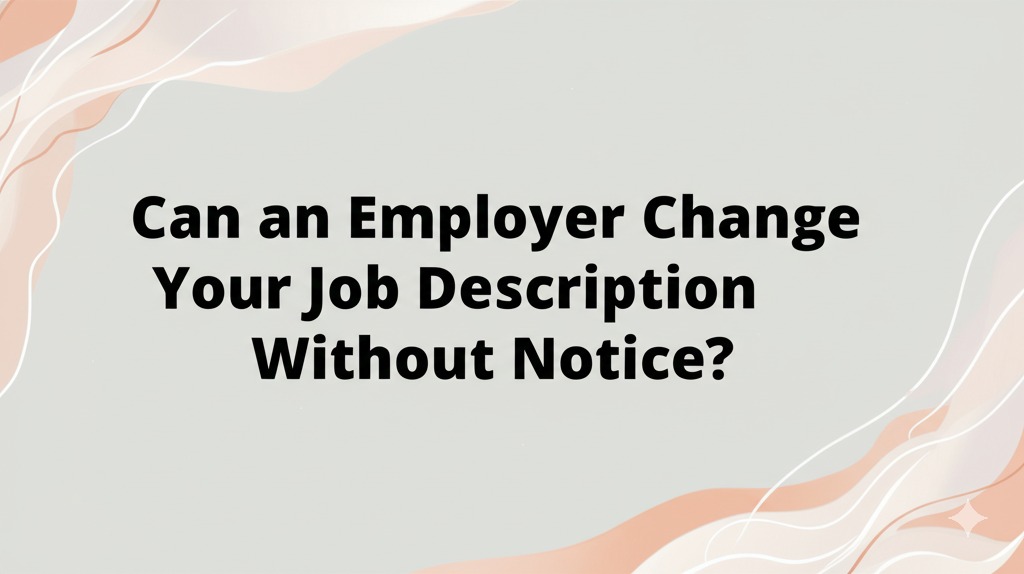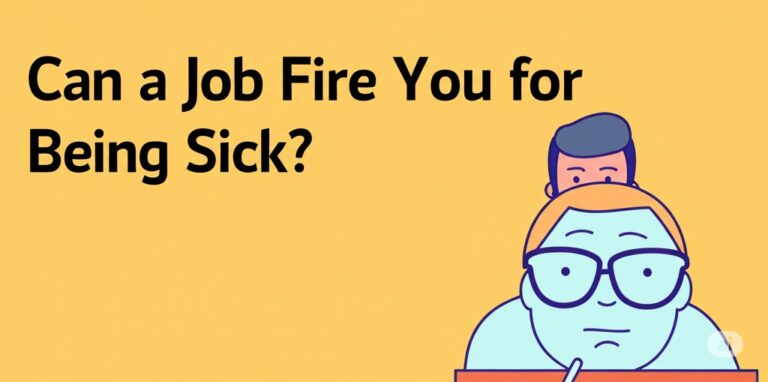
Imagine walking into work one day only to find that your responsibilities have changed completely—without any warning. It’s a scenario that catches many employees off guard and raises important questions about workers’ rights and employer obligations.
Can an employer change your job description without notice? The answer isn’t always straightforward. It depends on a variety of factors including employment contracts, local labor laws, and the nature of the change itself.
In this article, we’ll break down the legal and practical aspects of this issue so you can understand your rights and know how to respond if this happens to you.
Understanding Job Descriptions and Their Role
What Is a Job Description?
A job description outlines the duties, responsibilities, skills, and qualifications associated with a specific role. While it’s a helpful guide for both employers and employees, it’s important to understand that:
- Job descriptions are not always legally binding.
- They are often used as a baseline, not a rigid framework.
- Most roles come with a certain level of flexibility built-in.
At-Will Employment and Its Impact
In many states in the U.S., employment is considered “at-will”, which means:
- An employer can change job duties, hours, or even terminate employment at any time, with or without cause.
- Employees can also quit at any time for any reason.
However, even at-will employment has legal boundaries, especially when changes are discriminatory, retaliatory, or breach a contract.
Can an Employer Change Your Job Description Without Notice?
When Changes Are Generally Allowed
Employers often have the legal right to modify job duties without giving notice if:
- No employment contract specifies otherwise.
- The changes are minor or reasonable.
- The changes do not affect your pay, benefits, or work location drastically.
When It Might Be a Legal Issue
Your employer may not be allowed to change your job description without notice if:
- You have a written contract outlining specific job duties.
- You’re covered under a union agreement that requires negotiations for role changes.
- The change is retaliatory or based on discrimination (race, gender, disability, etc.).
- It results in a constructive dismissal, meaning the job change is so significant it’s as if you’ve been fired.
What to Do If Your Job Description Changes Without Notice
1. Review Your Employment Agreement
Start by checking:
- Job title and responsibilities listed in the contract.
- Any clauses about role flexibility or modifications.
- Notice requirements for significant changes.
If there’s ambiguity, consider seeking legal advice.
2. Have a Conversation with Your Employer
Sometimes changes are made without bad intent. Set up a meeting to:
- Ask for clarification on the new responsibilities.
- Express any concerns or challenges the change presents.
- Discuss how the change may impact your productivity or job satisfaction.
3. Document Everything
Keep a record of:
- Emails, memos, or messages discussing the job change.
- Any performance reviews or communication about the role.
- Notes from meetings with HR or your manager.
This documentation can be vital if you choose to escalate the issue later.
4. Know When to Escalate
If the change negatively affects you and the employer is uncooperative:
- Consult an employment lawyer.
- Contact your local Department of Labor or relevant labor board.
- File a complaint if necessary, especially if the change violates labor laws or your contract.
How Employers Can Handle Job Changes More Transparently
While this article focuses on employee rights, it’s worth noting that employers also benefit from handling job description changes with care.
Best practices include:
- Providing written notice ahead of changes.
- Offering training or support for new responsibilities.
- Updating job descriptions regularly and keeping employees informed.
- Including flexibility clauses in employment agreements from the start.
Final Thoughts
So, can an employer change your job description without notice? In many cases, yes—but not always. It depends on your contract, local labor laws, and the nature of the changes.
Key takeaway: If you’re ever in doubt, don’t stay silent. Review your rights, communicate clearly, and seek professional guidance when necessary.
➡️ Need help understanding your employment rights? Contact an employment lawyer or labor board in your area to ensure you’re protected.

Andre Cuevas provides career insights, job search strategies, and professional advice to help individuals navigate the job market and achieve their career goals.



